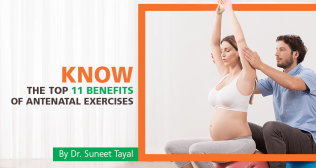
Why Does Your Belly Button Change Shape During Pregnancy? Here's the Surprising Reason
Pregnancy is a time of incredible transformation. As a new life grows, an expectant mother’s body undergoes a beautiful series of changes. Among the most visible of these is the blossoming of the pregnant belly, a clear sign of the miracle taking place within. While stretch marks and a growing bump are expected, many women are surprised by a smaller, more curious change: the transformation of their belly button.
One day it’s an "innie," and the next, it might be flat or even pop out like a little button. This common phenomenon often raises questions and curiosity. This guide will explore the fascinating reason behind belly button changes during pregnancy, explaining why it happens, when to expect it, and what it means for you and your baby.
The Growing Uterus: The Main Reason for the Change
The primary reason for any change in your belly button during pregnancy is simple: increasing pressure from the inside. As your baby grows, your uterus expands significantly, rising up out of the pelvis and pushing against your abdominal wall. This internal pressure pushes everything forward, including your belly button.
Think of your abdomen as a balloon being inflated. As it expands, the surface becomes taut, and any indentations, like your navel (the remnant of your umbilical cord), get pushed outward. For some women, the belly button flattens out, becoming flush with the surrounding skin.
For others, it leads to the well-known belly button pop out pregnancy phenomenon, where the "innie" temporarily becomes an "outie." This is a completely normal and harmless part of the process.
Understanding the Timeline of a Pregnant Belly
For first-time mothers, one of the most anticipated milestones is the appearance of a baby bump. The question of which month belly comes out in pregnancy is very common, and the answer varies for everyone.
- First Trimester (Weeks 1-12): During this time, the uterus is still relatively small and contained within the pelvis. Most women will not show a noticeable pregnant belly yet, although some bloating is common.
- Second Trimester (Weeks 13-27): This is when most women start to "pop." Typically, between 16 and 20 weeks, the uterus expands above the pubic bone, and a small bump becomes visible. As the second trimester progresses, the belly grows more rapidly. It's during this period, usually toward the end, that you might first notice your belly button during pregnancy starting to look shallower.
- Third Trimester (Weeks 28-40): Your belly will grow to its largest size during this final trimester. The pressure on your abdominal wall is at its peak, making it the most likely time for your belly button to pop out completely.
What Factors Influence Belly Button Changes During Pregnancy?
Not every woman will experience a popped-out belly button. Several factors can influence whether this happens to you:
- The Position of Your Uterus: The way your uterus is tilted can affect how much it pushes forward.
- Amount of Abdominal Fat: Women with more tissue around their midsection may find their belly button doesn't pop out as prominently.
- Skin Elasticity: The natural elasticity of your skin plays a role in how much it stretches.
- Previous Pregnancies: If your abdominal muscles were stretched during a previous pregnancy, your belly might show sooner, and your belly button might pop out earlier.
It's important to remember that whether your belly button pops or not has no bearing on the health of your baby. It is simply a cosmetic change resulting from the natural mechanics of a growing pregnant belly.
Is a Popped Belly Button Painful or Dangerous?
For most women, a belly button pop out pregnancy is completely painless. However, the stretched skin around the navel can become more sensitive and may feel itchy or irritated, especially when it rubs against clothing. Wearing soft, comfortable maternity wear can help minimize any discomfort.
In rare cases, a popped belly button can be related to an umbilical hernia. This occurs when a part of the intestine or fatty tissue pushes through a weak spot in the abdominal muscles near the navel. An umbilical hernia usually appears as a soft bulge around the belly button and may cause some pain. While most pregnancy-related hernias are not dangerous, it is always best to have any painful bulge checked by your doctor.
Will My Belly Button Go Back to Normal?
This is a very common question, and the answer is almost always yes. After you give birth, the pressure inside your abdomen decreases dramatically. In the weeks and months following delivery, as your uterus shrinks back to its pre-pregnancy size and your abdominal muscles regain some of their tone, your belly button will typically retreat and return to its familiar "innie" or "outie" shape. The timing can vary, but for most women, this happens within a few months postpartum.
Embracing the Changes of Pregnancy
The journey of pregnancy is filled with unique and sometimes surprising changes. From the first flutter of movement to the transformation of your belly button during pregnancy, each change is a sign of the incredible work your body is doing to nurture a new life. These physical markers are temporary reminders of a beautiful and profound process. So, whether your belly button stays in or pops out, you can embrace it as just one more story your amazing body has to tell.
Frequently Asked Questions
1. When does the belly button usually pop out?
Ans. It most commonly happens late in the second or early in the third trimester, when the growing uterus exerts the most pressure on the abdominal wall.
2. Is it possible for my belly button not to pop out at all?
Ans. Yes, it's very common. Many women's belly buttons simply flatten out or don't change significantly, depending on their anatomy and skin elasticity.
3. Can I do anything to prevent my belly button from popping out?
Ans. No, there is nothing you can do to prevent it. It is a natural physical change caused by internal pressure and is not within your control.
4. Does a popped belly button mean I'm having a boy or a girl?
Ans. This is a common myth, but there is no scientific basis for it. The shape or state of your belly button has no connection to the sex of your baby.
5. What should I do if my popped belly button is painful?
Ans. While some sensitivity is normal, sharp or persistent pain could indicate an umbilical hernia. You should consult your doctor to have it examined.



















